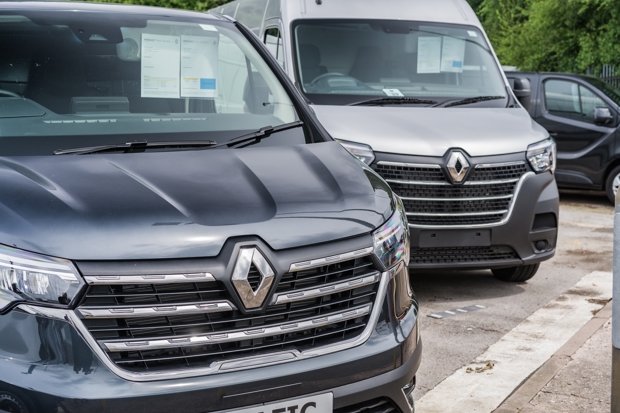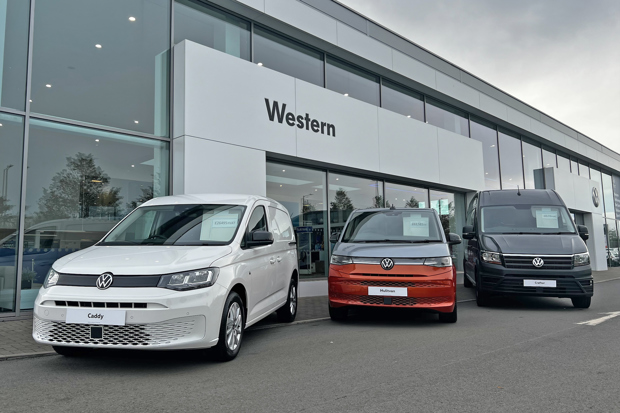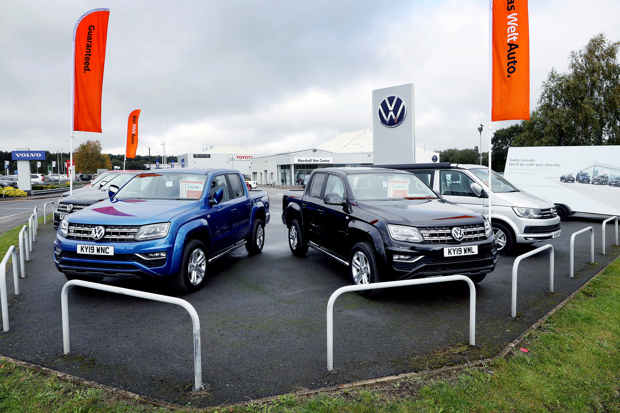Buying a van: Your complete guide
Buying a van is a big decision, whether it’s for high-mileage delivery use, running a small business or even for leisure purposes. Here's our complete guide so you don't come unstuck.

- What type of van do you need?
- How to inspect and test drive a van
- Should out stick to a diesel van or go for petrol or EV?
With so many vans on sale both new and used, the prospect of buying a van can be a bit daunting, while things like payloads and gross vehicle weights can make it more confusing than buying a car.
Ultimately, you want any van you buy to be reliable, dependable and suitable for your needs.
Here’s our advice on how to buy a van, which will make the process much easier. We’ll help you decide if a new van or a used van is best for you, what type of van you need, if an electric, diesel or petrol van is best, how to inspect a van and what you’ll need to know to look after it. If you're looking to buy at auction, check out our complete guide on how to buy a van at auction.
Is a new or a used van best for me?
The first thing you ought to consider is whether you want a brand-new or a used van and this will very much depend on how you plan to use it. Buying a used van is not like buying a used car, as some vans get used harder than others. If you’re concerned about being able to tell the difference, then a new van might be the best choice...
Buying a new van
With a new van, you get all the benefits of any new vehicle. A manufacturer warranty, the reassurance that the van hasn’t been used and abused by a previous owner, the ability to choose the options that suit you and the correct body type for your purposes.
But of course, this comes at a steep price. A new van won’t be cheap, with the smallest models costing from £20,000 upwards and some of the bigger and more advanced models pushing £100,000 depending on size, type and fuel choice.
If you do want a new van without spending thousands of pounds upfront, you can buy a one on finance or lease a van – but if you do, then you’ll need to maintain it in tip-top condition and are unlikely to ever be its outright owner.

Buying a used van
The used van market is vast, from those direct from rental or short-term lease fleets that are under two years old, to vans that have seen 20 years of service and a falling apart at the seams.
The first thing you need to understand is your budget. Whether you have £2000 or £25,000 to spend, you then need to look at what’s available in your price range. Check out the for sales sites and be sure to use our used van valuation tool, which will give you a price range for your chosen van and model year.
A used van will require more maintenance and unless it’s under three years’ old, you won’t have a warranty to fall back on. As a result you you need to budget for occasional repairs as well as servicing, tyres and other consumables.
On the plus side, you’ll save a small fortune in depreciation as most of this occurs in the first three years, after which any van in good working order will always hold its value quite well.
A major disadvantage, though, is that you’ll need to inspect the van carefully for damage, wear and mechanical defects. Also, vans tend to cover a higher mileage than cars. It’s not unusual to find one that has covered 100,000 miles in less than three years. That said, a well-maintained van should still be reliable.

What type of van do I need?
You don’t need a JCB to dig out a flowerbed. In the same vein you don’t need a Mercedes-Benz Sprinter or Volkswagen Crafter for delivering flowers or sandwiches, nor do you want to be delivering plant equipment or concrete slabs out of a Peugeot Rifter or Citroen Nemo. Do your research first before buying the first van that jumps out at you.
Think about what you’ll be carrying in your van, how heavy it is and where you’re going to park it. Most small vans will slip under the radar of your local Facebook page if you park them in the street, but high-sided long-wheelbase panel vans will have the curtains twitching in no time.
If you regularly need to go into towns and cities, then buying a van under 2.0m in height will be the wisest decision you ever make, as it can fit into the majority of underground and multi-storey car parks.
Small and medium vans are most popular on the used market and command the most attention, as they suit the majority of private or small business users.
Weight and payload are also important, as fines for driving overweight vans can be quite steep. There are three things to consider - the payload, the gross vehicle weight (GVW) and maximum authorised mass (MAM).
- Payload is how much weight the van can safely carry
- GVW is the maximum weight of the van including its driver and payload
- MAM is the total weight if towing, for example
Should I buy a petrol, diesel or electric van?
This depends very much on how you plan to use the van, how long you tend to keep it and where you live.
At the moment, the majority of vans are still diesel. This is unsurprising, as most new vans are sold into fleets that generally cover big mileages. Diesel remains the most fuel-efficient means of running one for commercial purposes. If you’re buying used, you'll find the majority of pre-owned vans will be diesel.
A diesel van still makes sense – a lot more so than a diesel car. But you need to check if they’re Euro6 compliant or not. Iit will say so on the emissions class section of the V5C logbook. If a van is not, then you’ll need to pay to enter London’s ULEZ zone and similar clean air zones across the country.
If you can only afford an older van and need to drive into cities, that’s where a petrol model may help. They’re generally restricted to smaller models such as the Citroen Berlingo, Renault Kangoo and Ford Transit Courier.
Electric vans are getting better all the time and will make a lot of sense to urban operators, as well as small business users who need the van to get to and from daily jobs but are not running it all day, every day.
EV range on vans is generally less than it is on cars, but you should still find plenty of options that will cover 150-250 miles on a charge. If you’re driving 50 miles each way to and from a job, then providing you can charge it overnight, an electric van can make sense.

How do I inspect and test drive a van?
If you’ve narrowed down the type of van you want, then the next thing to consider is an inspection.
With new vans, this is fairly straightforward – pop along to your nearest dealer and request a test drive, where you can get familiar with the vehicle, check that it’s comfortable and you’re happy driving it.
With a used van, you need to be a bit more vigilant. The first thing to check is the load bay – some wear is to be expected, but if it’s heavily soiled or dented, then the van has had a hard life.
Check all of its basic functions, as if test driving a used car. Is the engine smooth and responsive? Does it drive and brake in a straight line? Is the steering okay?
Look also for excessive smoke from the exhaust and listen for untoward noises from the suspension, especially at the rear where it has carried a load. Inside, check the dash for warning lights and make sure that the driver’s seat isn’t overly worn.
Ask the previous owner how the van has been used – has it been a heavy-duty van, or just used for light work?
Also check the overall condition. Your budget will dictate whether or not you can expect perfection. Vans generally live a harder life than cars, so the odd scuff or scrape is to be expected. But major damage and underbody corrosion should put you right off.
How do I best maintain a van?
Most vans are pretty reliable and no harder to maintain than cars, but the extra weight does mean tyre wear is often faster and harsher.
Also, if you buy a large van with a GVW of over 2.8t, it will need a Class 7 MoT. A car is Class 4, as are vans up to 2.8t GVW.
This will mean the test itself is more expensive and that the van will need to go to a test centre that can inspect Class 7s, so make sure you have one nearby – they’ll need a heavy-duty ramp or a large inspection pit.
Security is also a major concern. Vans are often targets for thieves because they sometimes contain valuable contents, so make sure you invest in a tracker or a decent alarm system if the van doesn’t have one already.
